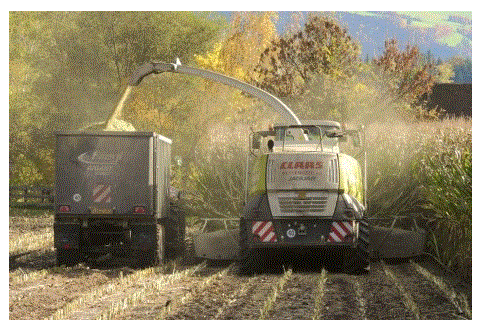According to an article by Jody Westby, CEO of Global Cyber Risk, published on Leader’s Edge website, as companies look to the year ahead, they should make sure they are prepared for the types of cyber attacks they might encounter in 2019. The cyber threat environment is more sophisticated than ever, and nation-states have increasingly played a role, often in coordination with other actors. Even the best chief information security officers are evaluating their programs against current threats and beefing up. Tell me more >>>
ACA Form 1095 Deadline Extended
According to BASIC HR Compliance & Technology, the IRS has extended the due date for certain 2018 information-reporting requirements for insurers, self-insuring employers, and certain other providers of minimum essential coverage under section 6055 of the Internal Revenue Code and for applicable large employers under section 6056 of the Code. Read more here.
Mad Cow Disease: BSE Case Found on Farm in Scotland
A case of BSE, commonly known as mad cow disease, has been detected on a farm in Aberdeenshire, Scotland, officials have revealed. A statement issued by Scottish authorities said “precautionary movement restrictions” had been put in place at the farm. Experts stressed it was a case of classical BSE, so posed no harm to human health. Investigations are underway to determine the origin of the disease, which has not been seen in Scotland in 10 years. Read more here >>>
Celebrating 25 Years as an ESOP: What employee ownership means for our clients
You may have heard that Murray is an employee-owned or ESOP (Employee Stock Ownership Plan) agency. What, exactly, does that mean if you are a Murray client or prospective client? Empowered Employees Employee ownership empowers employees. By giving employees the autonomy and flexibility to make judgement calls based on the customer’s needs, we streamline processes and increase customer satisfaction. Our employee-owners know their actions affect their customers, and ultimately, the success of our agency, and they take ownership of their decisions. In short, your success is their success. Preservation of Company Culture Many of our competitors have been involved in mergers and acquisitions that have distracted their employees, disrupted their culture and had a negative impact on the quality of …
September is National Preparedness Month
United States Department of Labor – Occupational Safety and Health Administration Emergencies can create a variety of hazards for workers in the impacted area. Preparing before an emergency incident plays a vital role in ensuring that employers and workers have the necessary equipment, know where to go, and know how to keep themselves safe when an emergency occurs. Access OSHA emergency preparedness and response pages >>>
Silo Filling Safety
Prepared by Dennis J. Murphy, Distinguished Professor, Pennsylvania State University Few farming operations provide as many different opportunities for accidents to happen as filling the silo. High powered equipment, working in close quarters, and the potential of silo gas formation combine to produce numerous injury incidents throughout the late summer and fall. Read safety information here >>>
Department of Agriculture Urges Farmers to Protect Against Flood Damage
From the July 2018 Farm Link newsletter… Agriculture Secretary Russell Redding today urged farmers and pet owners, particularly in central Pennsylvania, to prepare for the potential of flooding due to recent heavy rains. “It is critical that Pennsylvanians protect their animals, property, and assets against flooding, and many steps can be taken now to prevent future damage,” Redding said. Redding offered the following tips to help agricultural producers minimize damage caused by floodwaters: Ensure manure storage area has sufficient capacity, as rains can add to depth. Relocate livestock and animals from low-lying, flood-prone areas. Move machinery, feed, grain, pesticides, herbicides, forage bales and nursery stock to higher elevation. Store enough livestock feed and water for 72 hours. Fill generators with …
Are You Compliant?
The federal government revised a number of required employment laws and regulations, e.g. Family and Medical Leave Act (FMLA), Occupational Safety and Health Administration (OSHA), Fair Labor Standards Act (FLSA) and Equal Employment Opportunity Commission (EEOC). If you haven’t yet done so, it’s time to update your federal and state employment law postings. Physical and relevant employment law posters are required in order to meet state and federal posting requirements. Employers must post these notices in a common area that will be frequented by all employees, which depending on your location, may be a lunch room, break room, conference room, or kitchen, near a time clock or any location employees frequent daily. Did you know Pennsylvania requires employers must fill …
Significant Change in Medigap Plans C and F Coming in 2020
On Apr. 15, 2015, Congress passed the Medicare Access and CHIP Reauthorization Act of 2015, which will significantly change Medicare coverage in 2020. For anyone enrolling in Medicare after Jan. 1, 2020, they will not long be able to purchase a Medigap Plan C or Plan F. However, if you have purchased one of these supplemental plans by Dec. 31, 2019, the coverage will still be guaranteed renewable. It is important to note though that premiums could be subject to increase, which could make both Medigap plans cost prohibitive. The legislation The goal of the legislation is to revamp doctor reimbursement under Medicare, which is projected to cost up to $200 billion over the next decade, Elder Law Answers reported. …
Pennsylvania Proposes Big Changes to State Law White-Collar Overtime Exemptions
This article is by Adam R. Long, McNees Wallace & Nurick, LLC Back in January, Governor Wolf announced that the Pennsylvania Department of Labor and Industry (DLI) would propose new regulations under the Pennsylvania Minimum Wage Act (PMWA) that would increase the minimum salary requirement for the white-collar overtime exemptions under this law. The PMWA is the state-law equivalent of the federal Fair Labor Standards Act (FLSA). The PMWA and FLSA both place minimum wage and overtime pay obligations for Pennsylvania employers. While the laws’ requirements are similar, they are not identical. Employers in Pennsylvania must meet the requirements of both laws to ensure compliance. In areas where one law is more favorable to employees than the other, Pennsylvania employers must …









